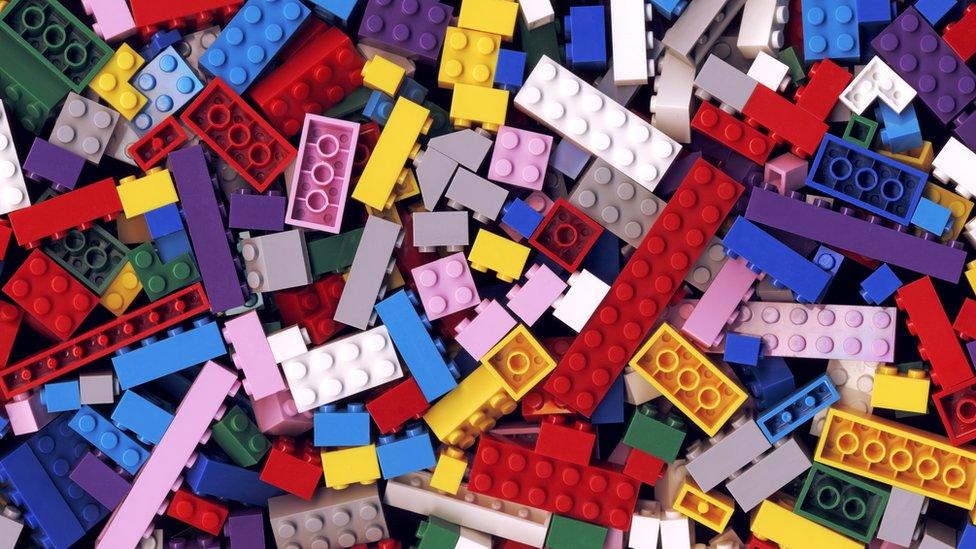Lego plastic bricks in oceans could be there more than 1,000 years
- Published

A scientific study looking into how long plastic remains in our oceans has revealed that children's toys like Lego bricks could last more than 1,000 years underwater.
The study at the University of Plymouth predicted that Lego bricks could survive in the ocean for between 100 and 1,300 years.
Sustainable materials are those made without using up non-renewable resources such as oil - used to make plastic - gas or coal.
Sustainable materials are things like bamboo, wool, sand, beeswax and coconut. These can be produced at the same speed they are used so have less impact on our planet than using non-renewable resources.
In 2018, Lego said it was looking to move towards using more sustainable materials in its products and packaging.
The company wants all of its bricks to come from sustainable materials in the next 10 years and has already produced bricks from a type of plastic made from sugarcane.
Ayshah visited a beach where thousands of Lego pieces had washed in from the sea in 2014
How do scientists know how long the plastics can last?
Obviously, Lego has not been around for more than a thousand years, so we have no physical evidence to show how long it remains in the sea.
However, scientists have carried out detailed tests on the toys.
They studied bricks that had been collected from beach clean ups and compared them to sets bought in the 1970's and 80's.
They looked at the amount of wear and tear the bricks found on the beach had gone through compared to the 70's and 80's bricks.
By looking at the changes they showed over the last few decades, they were then able to determine how long the pieces might be able to last in the marine environment.
Andrew Turner, lead scientist behind the study, said, "It once again shows the importance of people disposing of used items properly to ensure they do not pose problems for the environment."
What do you think about the latest news on plastic?
Let us know in the comments
If you cannot see the interactive activity on this page, click here.
- Published31 August 2018
- Published24 February 2020
- Published28 November 2019
- Published2 March 2020
